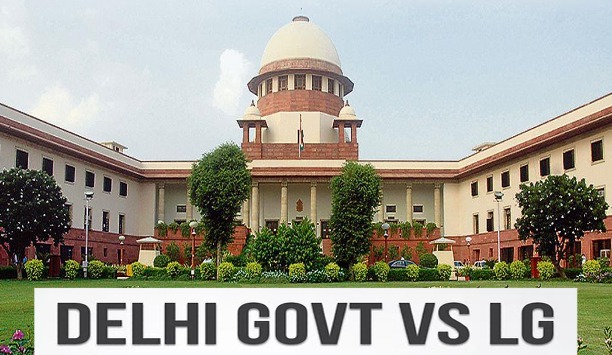
The Supreme Court will deliver its judgement on Thursday in the dispute between the Central and Delhi governments over administrative control over civil servant transfers and postings in the national capital.
A Constitution bench led by Chief Justice of India (CJI) DY Chandrachud and including Justices MR Shah, Krishna Murari, Hima Kohli, and PS Narasimha reserved its judgement in the matter on January 18, this year.
Background
The case arose in 2018, when a Supreme Court Constitution Bench had interpreted Article 239AA of the Constitution, which contains special provisions with respect to the National Capital Territory (NCT). In the case, the distinctive status of the NCT, the powers of the Delhi Legislative Assembly and the LG, and their interplay were discussed.
In that decision, the Court determined that the LG cannot act autonomously without the assistance and advice of the Council of Ministers, and must collaborate with the NCT government.
Individual components, including services, were subsequently appealed to a regular Bench for adjudication based on the Constitution Bench decision.
On April 14, 2019, the regular bench pronounced its decision on several specific parts of the dispute between the Delhi government and the LG.
However, the two judges on the Bench, Justices AK Sikri and Ashok Bhushan, disagreed on the definition of ‘services’ under Schedule VII, List II, Entry 41 of the Indian Constitution.
The Court evaluated whether the exclusion of “services” related to Entry 41 of List II of the Seventh Schedule from the legislative and executive realm of the NCT of Delhi, as notified by the Government of India in a notification dated May 21, 2015, was unconstitutional and illegal.
Because the judges on the Bench disagreed, the case was referred to a larger Bench, and it was heard by a three-judge panel.
On the Centre’s request, the three-judge bench referred the case to the Constitution Bench.
The primary reason for the petition to be referred to a five-judge bench was that the majority judgement of the Constitution Bench did not consider the purpose and intent of the phrase “insofar as any such matter is applicable to Union Territories” as it appears in Article 239AA (3) of the Constitution, which is the pivotal and crucial aspect of the said provision.




